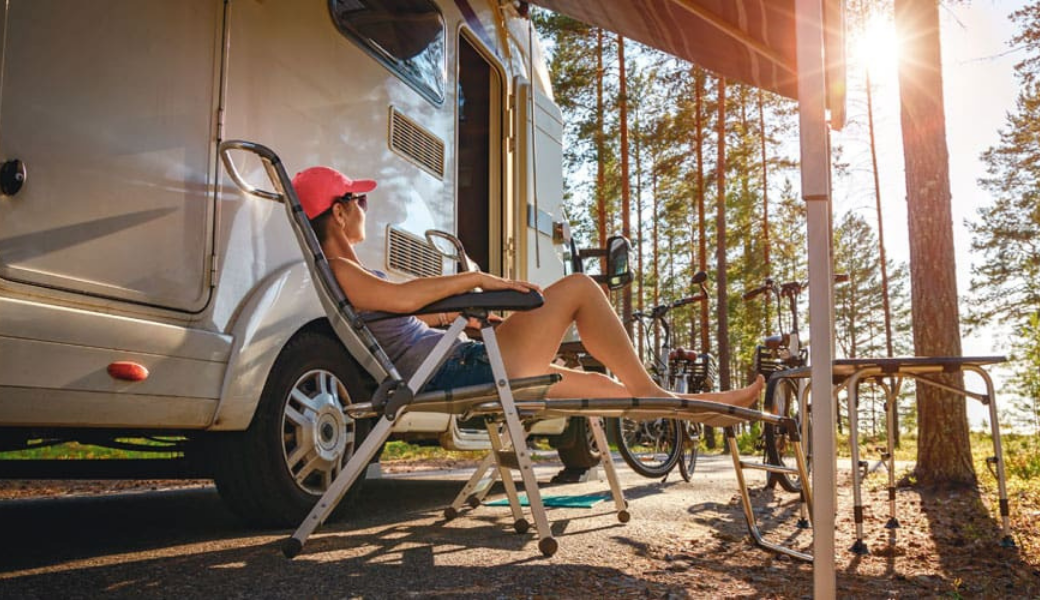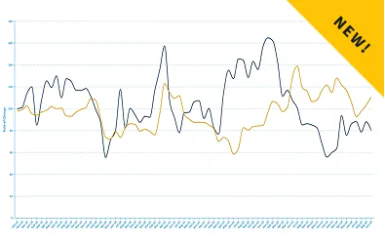Costco Connect Coverstory: Hit The Road

The Go RVing PR team works with media outlets across the country to tell the real-life stories of RVers and introduce even more consumers to the RVing lifestyle. Recently, they spoke with Costco Connect, the fourth largest magazine in the United States, to share advice on making preparations before the next RV road trip.
Since the pandemic started, recreational vehicle (RV) travel has taken the spotlight as the ultimate vacation. RV rentals and sales soared, according to the RV Industry Association. “[We’ve seen] a huge rise,” notes Paige Bouma, executive vice president of RV Trader, a website listing classified ads for new and preowned RVs, who notes that families found RV travel a way to hit the road and get away safely on their own during the pandemic. “It gives you a destination for something to do. You’re naturally social distancing, you don’t have to share a bathroom and you can make your own food.”
Add to that the beauty of nature and the thrill of exploring it, and it’s no wonder RVing has surged in popularity. “We really like moving around,” says Costco member Jennifer Stermer, who has been RVing with her husband for more than five years. “We can go wherever we want, and our house is right with us.”
If the idea of rolling down the road in a home on wheels appeals to you, there are important considerations. Planning and preparation, key to any trip, are especially crucial now, even as COVID-19 wanes. “Nowadays it’s even more important to do your homework and call ahead or visit websites to see what’s open,” Stermer says.
Behind-the-wheel preparations
“In most states, as long as your RV is under 26,000 pounds—and nearly all of them are—you won’t need a special license to drive it,” says Costco member Janine Pettit, founder of camping enthusiast website Girl Camper (girlcamper.com).
According to Pettit, the RV dealer where you buy or rent the vehicle should provide some initial driving guidance. Driving the vehicle around an empty parking lot, such as at a church or mall, may help you grow comfortable with the maneuvering techniques. You can get further instruction at places like RV Basic Training (rvbasictraining.com) or RV Driving School (rvschool.com), which offer driver training in different locations across the country.
Whether you’re staying close to home or crossing the country, you’ll want to make sure your RV is ready for travel, says Gary Lewis, CEO of RV Basic Training and a Costco member. Having a mechanic who is familiar with RVs look over the vehicle can be helpful. Lewis recommends checking the engine fluid levels, belts and hoses. Test the lights to ensure they all work, including turn signals and the license plate light. Keep anything on the roof tightly secured, along with compartment doors and everything inside the RV. If you’ll be towing another car during the trip, make sure the vehicles are equipped with proper hitch systems and that the RV can handle the extra load. Lewis had his mechanic install a base plate and electrical hookups to his car so it could be towed with all four wheels down.
In addition, check the tires for correct air pressure and any cuts or gashes, and make sure they’re rated for the load they’ll carry. Also check the tires’ manufacture date. “Tires older than five years can be a real hazard on the road and cause blowouts,” Lewis says.
Mapping the route
If you’re thinking about camping, you’ll find two main options: public campgrounds and private campgrounds. Public campgrounds can be found in places like state and national parks. They tend to be in rural settings and may be near hiking trails or a lake. Privately owned RV parks and campgrounds are often not as remote as public campgrounds.
A third, less common option, consists of finding a place on your own. Often referred to as “boondocking,” the idea is to camp off the grid, away from the services and amenities provided at public and private campgrounds.
Keep in mind, however, that this option includes extra legwork. “There’s a romantic notion of camping anywhere in the wild,” says Costco member J.P. Smith, co-creator of the Ultimate RV Checklist app and a full-time RVer for more than seven years. “It’s possible, but it takes preparation.”
For instance, you’ll typically rely on solar power or a generator in those places. “Know how long you can stay away from hookups,” Smith adds.
And you’ll need to check that the spot you’re considering is legal and available. While boondocking is often allowed in parking lots and public land areas, it’s best to check with a manager, public lands office or area official prior to setting up for the night.
Travel apps designed for RVs can simplify the trip logistics. RV Trip Wizard, for instance, helps you plan your route, find campgrounds and RV resorts, and determine how far you can go between gas stops. In addition, it will point out roads to avoid based on the size of your RV.
Packing the vehicle
As you would before any vehicle trip, pack a few tools to make a quick repair, as well as flashlights, road flares, etc., plus extra gear for cold weather. Of course, “it’s always a good idea to have a first-aid kit,” says Bryanna Royal, a full-time RVer and Costco member who has visited Costco warehouses around the country.
Before loading the RV, “create a packing list of things you will want,” says Pettit. Think through meals and snacks that you’ll want during travel days and while staying at your destination. Turn on the refrigerator a day or two before the trip so it’s cool and ready when you leave.
Read the full article from Costco's website here.
Please Sign in to View
Log in to view member-only content.
If you believe you are receiving this message in error contact us at memberservices@rvia.org.

